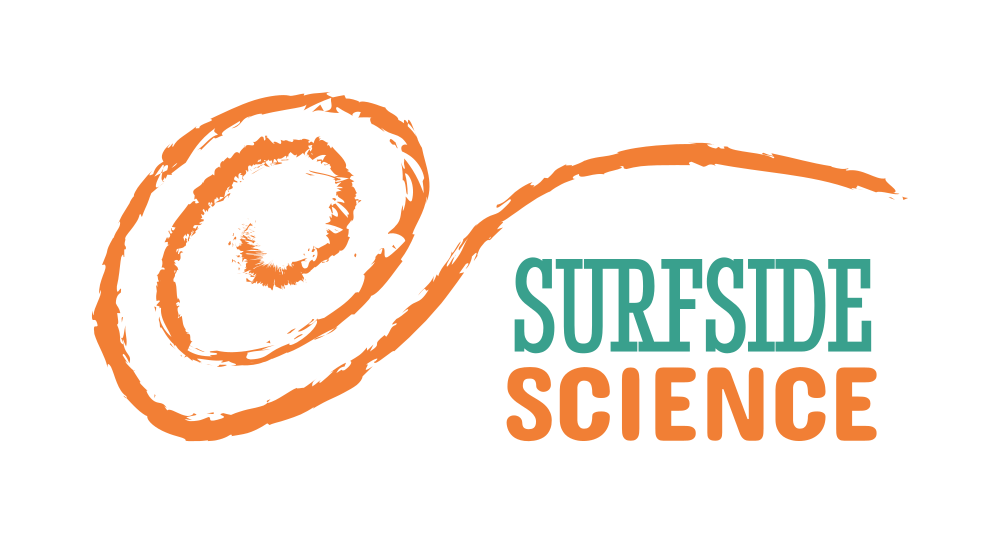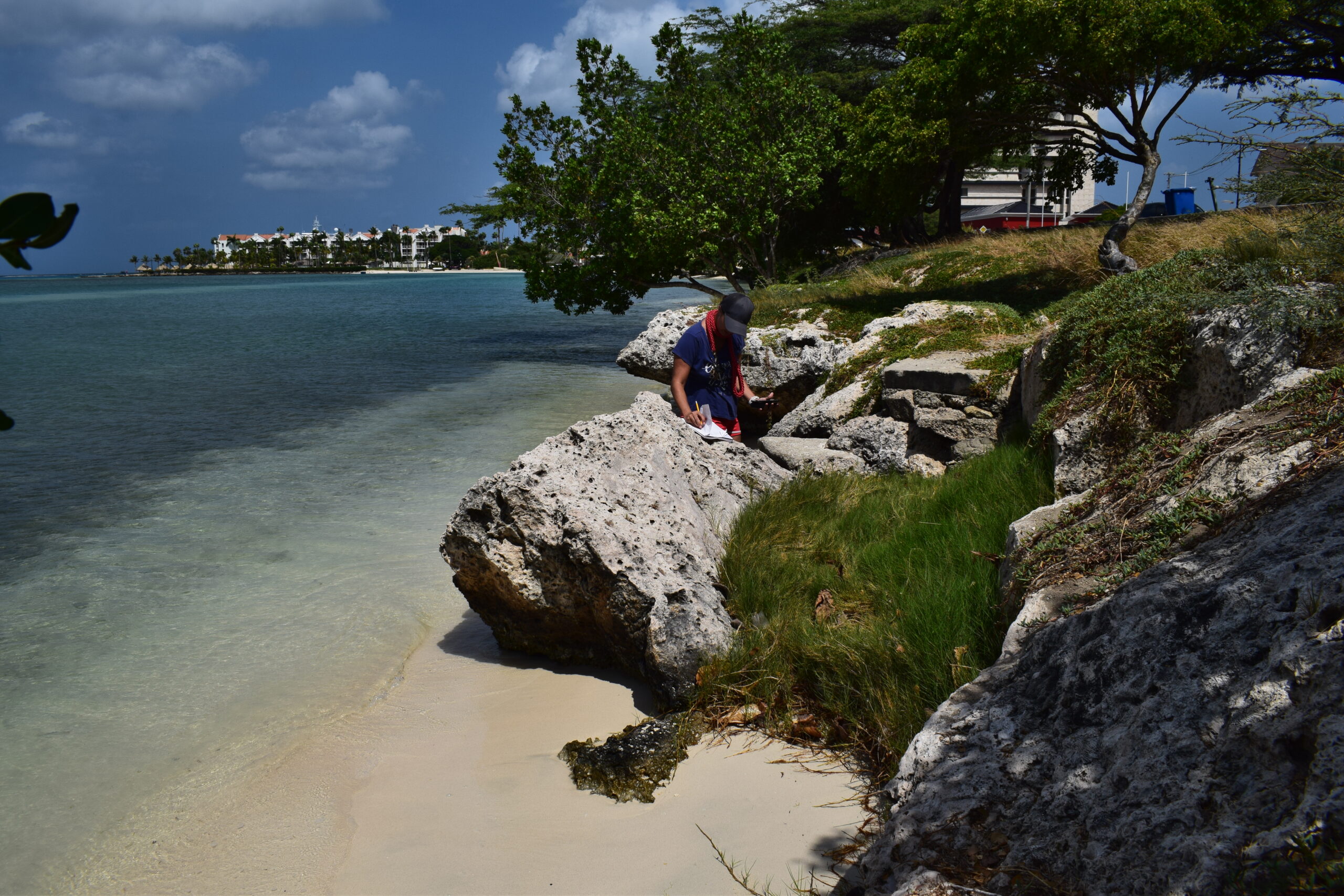Honorary Mention
Surfside Science aims to validate replicable methods to monitor coastal and marine ecosystems, focusing on Surfside Bay in Aruba as a case study. The goal is to identify which methods can contribute to improving access to data collection systems on small islands, with all methods and findings documented and shared openly through this website.
The prokect consists of a team of experts and students with expertise in science, technology, engineering, mathematics and arts (STEAM) developing and testing several methods for environmental monitoring, focusing on satellite imagery and low-cost electronic sensors. At its pilot site of Surfside, it is measuring the following parameters:
- Air Quality: Particulate matter, humidity and temperature
- Water Quality: pH, dissolved oxygen, temperature, and electrical conductivity
- Coastal Change: Vegetative cover, coastline, size of reef islands
- Seafloor Mapping: Seafloor cover, including shallow reef and aquatic vegetation
Monitoring
Data collection systems developed to monitor the different environmental aspects will be validated to standard scientific methods. Through the set up of validated data systems, Surfside Science wants to contribute to the conservation of marine ecosystems and monitoring of coastal impacts, including climate change. Our aim is to finalize this project with 5 sensors installed at surfside bay. Our methods involve a combination of sensors, satellite imagery, analysis of underwater pictures through citizen-science and the use of Artificial Intelligence. An online database will be developed that can automatically and continuously collect, store, share, and analyze the data. All data will be open source and accessible for public use.
Replicable Systems
For all our validated data collecting systems we will create clear and simple technical instructions that allows others to replicate these systems. These technical instructions will be hosted on frequented citizen science and maker platforms (for example: GitHub, Instructables). We hope this will empower SIDS with the tools necessary to also start collecting their own data.
As such, the objective of this project is to contribute to the increased resilience of Aruba’s marine and coastal ecosystem against impacts such as climate change. After this pilot year, funded by RESEMBID, we wish to explore long term funding models to support continued, and expanded monitoring of Aruba’s Marine Ecosystem applying the tools developed in this pilot.
RESEMBID
Metabolic Foundation received funds from the Resilience, Sustainable Energy and Marine Biodiversity Programme RESEMBID. RESEMBID, funded by the European Union and implemented by Expertise France – the development cooperation agency of the Government of France, supports sustainable human development efforts in 12 Caribbean Overseas Countries and Territories (OCTs) – Aruba, Anguilla, Bonaire, British Virgin Islands, the Cayman Islands, Curaçao, Montserrat, Saba, Sint Eustatius, Saint Barthelemy, Sint Maarten and Turks and Caicos. Surfside science will contribute to SDG 11, 13, 14 and 15
Surfside Science is a project that combines citizen science and sensors to monitor a specific area of the coast of the Caribbean island of Aruba. Like many other coastal areas, Aruba faces critical threats from climate change and environmental degradation, with sea level rise, coastal erosion, extreme weather, habitat destruction, and pollution. The jury praised the low-cost and maker approach for environmental monitoring.
European Union Prize for Citizen Science Jury 2023 (Kat Austen, Lewis Hou, Pedro Russo, Andrea Sforzi, Stefanie Wuschitz). View full Statement here.
Credits
RESEMBID (2022-2023) Expertise France (2022-2023)
Surfside Science received funds from the Resilience, Sustainable Energy and Marine Biodiversity Programme RESEMBID. RESEMBID, funded by the European Union and implemented by Expertise France – the development cooperation agency of the Government of France, supports sustainable human development efforts in 12 Caribbean Overseas Countries and Territories (OCTs) – Aruba, Anguilla, Bonaire, British Virgin Islands, the Cayman Islands, Curaçao, Montserrat, Saba, Sint Eustatius, Saint Barthelemy, Sint Maarten and Turks and Caicos.
UNESCO (2018-2019) for Environmental Monitoring for SIDS, UNESCO (2021-2022) for Replicable Ocean Science for SIDS and UNESCO (2023) for Future Ocean Conversations.
Biographies

Surfside Science
Surfside Science (AW) started in August of 2022 created by Metabolic foundation in Aruba with the support of RESEMBID, funded by the European Union and implemented by Expertise France. As a continuation and broadening of developments before this project with funding by UNESCO. We were able to delph further and develop fully, test and validate our replicable and affordable environmental monitoring systems which will provide open-sourced live environmental indicators DATA. The project holds a team of local professionals and students who test and develop methods to monitor the environment of our coast for a year in Surfside Bay. The instruments will measure air and sea water quality, coastal dynamics, and vegetation under water. RESEMBID is a program that supports sustainable human development of European countries and territories in the Caribbean (OCTs), of which Aruba is a part of. RESEMBID is financed by the European Union and its implementation partner is Expertise France, the latter being a collaboration agency for the development of the French Government.
Surfside Science aims to contribute to the resilience of Aruba’s marine and coastal ecosystem against the impacts of climate change. Aruba, like many other small developing islands, lacks reference data and continuous measurements of various environmental indicators. At the end of the project, Surfside Science hopes to have 10 sensors installed in Surfside Bay. The data collected will be available on the website science.brenchies.com for public use, and will benefit especially local people who are active in academia, foundations, students, and professionals.
The young professionals and local students working together on this project are:
- Christie Mettes, with a master’s degree in environmental science, is the project director.
- Tony Sevold, who studied environmental science, mathematics, and physics and works in microbiology, leads the scientific investigation.
- Tatiana Becker, who studied marine environmental engineering and ecology, will compare the methods developed during the project with standardized and scientific methods.
- Jeremy Granadillo, who studied Media and Technology in Rotterdam, is working on the digital interface that will receive and analyze data.
- Suyin Ridderstaat, who studied communication, marketing, and illustration, is the Communications and visibility coordinator.
- Manuel Rojas, an electrical engineering student at the Eindhoven University of Technology, is working on water quality.
- Sean Brokke, an ICT student at Fontys, is working on air quality.
- Amaryllis Lee, an Artificial Intelligence student at Hogeschool Utrecht worked on our AI.
- Gyonne Goedhoop a structural contributor who is our funding consultant for future funding.
- ScubbleBubbles, a group of young divers, will help verify satellite images.
The project is collaborating with the University of Aruba from which we received interns who have worked on air and water sensors, GIS and validation (Alexandra Ulacio, Raydeline Wever, Max van Schie, Stephen Richards, Keiran Kelly, Jean-Marc Rosenstand). We also have received support of the local community by volunteers participating in seafloor mapping. And establishments on the bay hosting our sensors such as Neptali Park and Surfside Marina.
